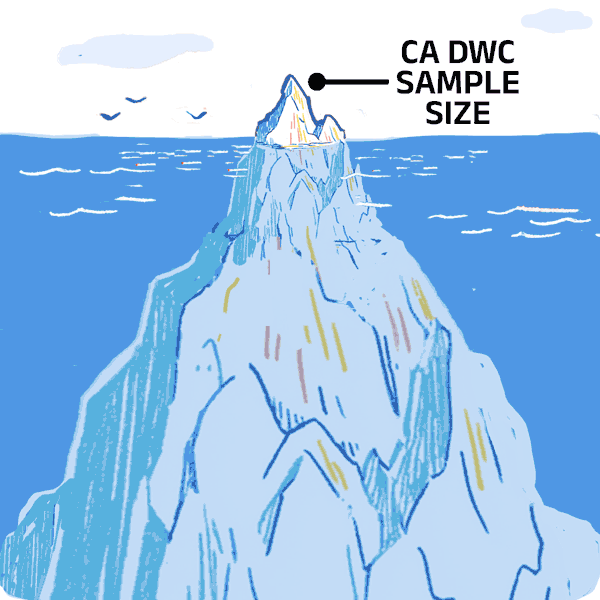Maximus & DWC Drop Ball on IBR Eligibility

California workers’ comp billing and payment regulations are a minefield of complications. That said, some rules are fairly simple, and should be immutable.
For example, authorization guarantees payment.
Somehow, the state’s Division of Workers’ Compensation (DWC), and its proxy, Maximus, flubbed this very straightforward principle, ruling a dispute ineligible for Independent Bill Review (IBR) despite the services in question being authorized, and despite having previously ruled in favor of the provider in other similar disputes involving authorization.
Which brings to mind this description of Kafkaesque: "You don't give up, you don't lie down and die. What you do is struggle against this with all of your equipment, with whatever you have. But of course you don't stand a chance. That's Kafkaesque."[1]
While this tale centers around treatment provided to a CVS Pharmacy injured employee, it is important for all employers that use Sedgwick as a third-party administrator (TPA) to stop and reflect on whether Sedgwick’s refusal to properly reimburse physicians accurately reflects your mission as an employer.
Struggle 1: Sedgwick Slips In an ‘Illegal Player’ to Deny Second Review
In a recent case, the dispute started when Sedgwick denied a bill for services provided to an injured CVS Pharmacy employee, citing on the Explanation of Review (EOR) that the services were not authorized.
Sedgwick denied the bill despite the fact that the provider included a copy of the authorization from Sedgwick with the original bill.
Appropriately, the provider sent Sedgwick a Second Review appeal, indicating (again) that Sedgwick, in fact, authorized the services.
In responding to the Second Review appeal, Sedgwick realized the “lack of authorization” argument was too ridiculous to work, so Sedgwick added a NEW and DIFFERENT denial reason: the provider was not in the required MPN.
Given that a provider is only allowed to submit a single Second Review appeal, a claims administrator cannot at this stage add a new and different reason for denial. That’s like slipping in a 10th player on a nine-player baseball team -- it’s against the rules, and a referee should toss the extra player out. New and different adjudication is simply not allowed.
Struggle 2: Authorization Take-Back Against the Rules
More importantly, this new, ineligible denial reason is unvarnished bunk. Sedgwick authorized the treatment and, per the DWC website’s FAQ page on Utilization Review, authorization cannot be rescinded for any reason after treatment is provided, even if the provider is not in the MPN (our emphasis):
... Authorization means "assurance that appropriate reimbursement" for the treatment specified will be paid. The California Labor Code provides that once an employer (or its insurer or URO) authorizes medical treatment, that authorization shall not be rescinded or modified for any reason after the medical treatment has been provided based on the authorization, even if the employer later determines the physician was not eligible to treat (e.g. was not an MPN provider)...
Take a moment here: The DWC’s own FAQ directly addresses this exact scenario.
Once the claims administrator authorizes treatment, the claims administrator must reimburse the provider for said authorized treatment. To put it another way, there is no authorization “take-back” once the provider treats the injured worker.
Nonetheless, Sedgwick saw fit to take back its own authorization, ignore regulations as well as the guidance of the DWC FAQ, and deny the Second Review.
Struggle 3: The Reason This Case Is Kafkaesque
After receiving the denied Second Review, the provider then endured the hassle of filing a request for IBR, including remittance of the $195 IBR filing fee, $47.50 of which is non-refundable if the request is deemed ineligible.
With proof of authorization clearly documented, there was no rational reason for Maximus to treat this IBR request any differently from the many, many many IBRs on which Maximus previously ruled and for which it upheld the primacy of authorization for payment.
Inexplicably, Maximus forwarded the IBR request to the DWC, (presumably annotated with a ¯\_(ツ)_/¯).
The DWC, in perhaps an example of institutional folie à deux, bought Sedgwick’s bait and switch tactic (i.e., introducing the MPN denial rationale at the second review stage) and ruled the dispute ineligible for IBR. Despite the proof of authorization, the DWC for some mysterious reason ignored the prior authorization and ruled against the provider.
The provider followed all the regulations and behaved in a way consistent with a reasonable, rational system of rules: seeking and obtaining authorization, delivering the authorized treatment, billing correctly, appealing timely, and, finally, paying $195 and filing an IBR.
All for nought.
Maximus was wrong to send this case to the DWC, especially in light of its previous decisions. More frustratingly, the DWC was wrong for violating one of the few clear-cut principles that attempt to stabilize workers’ comp revenue management: authorization is final. With this ruling, authorization apparently guarantees nothing.
To expand upon our earlier quotation from Frederick R. Karl, we’ve entered into a surreal Kafkaesque world wherein:
...all your plans, the whole way in which you have configured your own behavior, begins to fall to pieces, when you find yourself against a force that does not lend itself to the way you perceive the world.
But of course we do continue to struggle, because otherwise the rules are ignored, chaos reigns, and providers have no expectation of payment even when they scrupulously follow the complex rules required to simply treat injured workers. Employers like CVS Pharmacy need to join the struggle to help their injured employees receive the care they deserve.
DaisyBill offers all the tools a provider needs to bill compliantly and effectively. Our Billing Software includes everything you need for RFAs, bills, and appeals for second review, plus tools for effective IBR requests, including our IBR Decision Library. Schedule a free demonstration today:
SCHEDULE DEMO
[1] Frederick R. Karl quoted by Edwards, Ivana. “The Essence of ‘Kafkaesque’.” New York Times, December 29, 1991, https://www.nytimes.com/1991/12/29/nyregion/the-essence-of-kafkaesque.html. Emphasis added.
DaisyBill provides content as an insightful service to its readers and clients. It does not offer legal advice and cannot guarantee the accuracy or suitability of its content for a particular purpose.


.gif)